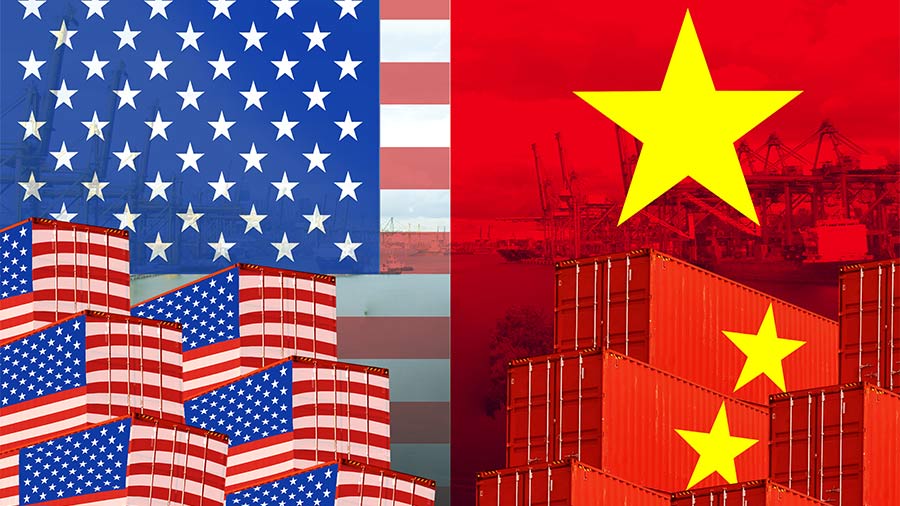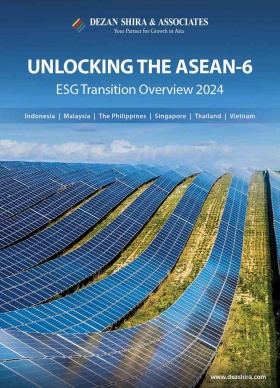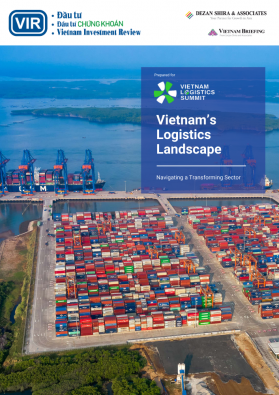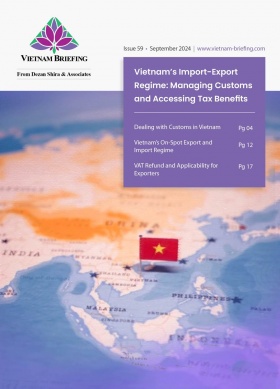Vietnam’s Strategic Push into the Middle East Halal Market
Vietnam is boosting its Halal exports by leveraging agricultural strengths and certification advancements to meet growing global demand, especially in the Middle Eastern markets.
Vietnam is actively pursuing opportunities to expand its foothold in the global Halal market, which is projected to grow from US$2.4 trillion in 2024 to an astounding US$4.5 trillion by 2030.
With a strategic focus on the Middle East, Prime Minister Pham Minh Chinh’s recent visits to the UAE, Saudi Arabia, and Qatar underscore Vietnam’s ambition to position itself as a key supplier of Halal-compliant agricultural and fishery products.
The Vietnam Halal Center estimates that the country has the potential to produce up to US$34 billion worth of goods for Organization of Islamic Cooperation (OIC) nations, whose combined GDP reached US$8.5 trillion in 2023. Leveraging its diverse agricultural base and growing food processing industry, Vietnam is well-equipped to meet the rising global demand for Halal-certified goods driven by a growing Muslim population and increasing consumer spending.
During his Middle East tour, PM Chinh emphasized Vietnam’s readiness to align its production capabilities with Halal standards through adherence to international benchmarks. Discussions also explored avenues for bilateral cooperation in trade, investment, and food security, particularly focusing on technology transfer and expertise in Halal production.
By strengthening ties with Middle Eastern nations and tapping into the vast OIC market, Vietnam aims to expand its market access, attract strategic investments, and support its long-term export growth in this rapidly expanding sector.
Vietnam’s Halal exports potential in the Middle East
Vietnam possesses substantial potential to thrive in the rapidly expanding global Halal market, driven by its status as one of the top 20 food exporters and the 15th largest agricultural exporter worldwide. Key exports, including pepper, cashew nuts, shrimp, pangasius, coffee, furniture, and rice, have solidified Vietnam’s reputation as a major agricultural powerhouse, with the sector contributing around 11 percent of the nation’s GDP.
Several Vietnamese companies have already made successful inroads into the Halal market. Minh Phu Seafood Corporation, one of the world’s largest shrimp producers, has significantly increased its exports to Muslim-majority nations after obtaining Halal certification. Similarly, Vinamilk, Vietnam’s leading dairy company, has expanded its product offerings to include Halal-certified items, unlocking new markets in the Middle East and Southeast Asia. These examples highlight Vietnam’s readiness to meet the growing demand for Halal-compliant products.
Vietnam’s existing production standards, such as VietGap, GlobalGap, and HACCP, align closely with Halal requirements, providing a solid base for scaling up certification processes. The country is also actively seeking partnerships with international Halal certification bodies and OIC countries to ensure its products meet global standards. Recent agreements with Malaysian and Indonesian authorities, for instance, aim to establish mutual recognition of certification, facilitating smoother market access.
This strategic push positions Vietnam not only to enhance its traditional agricultural exports but also to diversify into high-demand Halal categories, such as processed foods, beverages, and dairy products. With the right investments in certification infrastructure and partnerships, Vietnam can strengthen its presence in the Middle East and beyond, tapping into a lucrative sector poised for sustained growth.
Key outcomes of PM Chinh’s Middle East tour
During his visits to Qatar, Saudi Arabia, and the UAE, PM Chinh engaged in crucial discussions with regional leaders, particularly Qatari Prime Minister Sheikh Mohammed bin Abdulrahman Al Thani. These conversations underscored Vietnam’s strategic intent to deepen bilateral ties with key Middle Eastern partners.
The dialogues were primarily centered around expanding cooperation in trade and investment, areas where both sides see significant potential. In particular, the talks focused on fostering collaboration within the rapidly growing Halal industry, with a clear aim of enhancing mutual economic prosperity. By engaging in high-level discussions, Vietnam is signaling its desire to become a more integral player in the Middle East’s trade networks.
As part of the broader dialogue on strengthening trade and economic ties, PM Chinh’s visit also underscored the importance of food security in the Middle East. Vietnam, with its rich agricultural expertise, proposed initiatives aimed at supporting sustainable farming practices in the region.
One such proposal was to send Vietnamese experts to assist in seafood farming and agricultural development, particularly in areas where food security is an ongoing concern. This initiative is not only about sharing expertise but also about fostering long-term, mutually beneficial partnerships between Vietnamese and Middle Eastern firms. By positioning itself as a partner in addressing regional food security challenges, Vietnam is enhancing its reputation as a reliable and capable supplier in global agricultural markets.
Opportunities in the MENA Halal Market for Vietnamese firms
The Middle East-North Africa (MENA) region presents a dynamic and rapidly expanding market for Halal products, creating significant opportunities for Vietnamese businesses. The MENA Halal food market, valued at US$192.6 billion in 2022, is expected to grow to over US$228 billion by 2024, driven by a combination of population growth and shifting consumer preferences. With projections for continued strong growth, this market is increasingly seen as a key focus for countries like Vietnam seeking to tap into the global Halal economy.
A major driver of this growth is the region’s young and rapidly expanding Muslim population, which is expected to reach over 600 million by 2030. This demographic shift is leading to greater demand for Halal-certified food products, particularly among the urban youth who are more inclined to purchase packaged, ready-to-eat items. As a result, there is a clear opportunity for Vietnam, with its strong agricultural base and growing food processing industry, to meet this rising demand.
Country-specific opportunities include the following:
- Qatar‘s Halal food market, valued at US$35.97 billion in 2022 and projected to grow at a CAGR of 5.28 percent, offers significant opportunities for Vietnamese food exports, especially in meat, seafood, and dairy. The meat and alternatives sector alone is expected to account for over 49 percent of the market share by 2032. Beyond food, Halal tourism also presents growth potential, with Vietnam positioned to attract premium Qatari tourists by aligning travel services with Islamic standards. Events such as the Doha Coffee International Exhibition and Food Qatar Forum further facilitate connections between Vietnamese businesses and Qatari partners, enhancing export opportunities. With Qatar’s growing demand for Halal products and Vietnam’s agricultural capacity, combined with strong diplomatic efforts, Vietnamese firms are well-placed to capture a substantial share of this market and expand across the GCC.
- Saudi Arabia is another key market for Vietnamese companies. As the largest Halal food market in MENA, valued at US$60.03 billion by 2024, Saudi Arabia’s consumption power offers immense potential for Vietnamese exporters. The country’s climate limits its ability to produce sufficient Halal food domestically, with imports satisfying 85-95 percent of its needs. This presents an ideal scenario for Vietnam, particularly in the areas of meat products, seafood, processed foods, and beverages. Additionally, Saudi Arabia serves as a strategic gateway to other Gulf countries such as Kuwait, Bahrain, and Jordan, creating an expanded market for Vietnamese goods.
- Egypt, with a population of over 106 million and a predominately Muslim demographic, offers one of the most immediate prospects for Vietnamese firms. Egyptian Halal food regulations remain relatively flexible, with current standards focusing mainly on livestock and poultry products. The country has also temporarily postponed the requirement for Halal certification for dairy products until 2026, presenting a prime opportunity for Vietnamese dairy producers to gain a foothold in the market ahead of these regulations coming into effect. This grace period allows Vietnamese exporters to explore the market without facing the barriers of immediate certification requirements.
Challenges and strategic considerations
While the Middle East presents significant opportunities, Vietnamese firms must navigate several challenges to succeed. One of the key hurdles is the complexity of Halal certification. Vietnam currently has limited Halal certification agencies that are recognized by Middle Eastern countries, which can delay entry into these markets. Furthermore, Vietnamese businesses must compete with established players that have long-standing relationships with local distributors and a deep understanding of regional preferences.
To overcome these challenges, Vietnamese firms will need to strengthen their Halal certification processes, build stronger relationships with local partners, and invest in understanding the specific needs of consumers in the MENA region. Expanding product offerings to include ready-to-eat and packaged Halal foods, as well as diversifying into Halal-certified cosmetics and beverages, could help Vietnam gain a competitive edge.
About Us
Vietnam Briefing is published by Asia Briefing, a subsidiary of Dezan Shira & Associates. We produce material for foreign investors throughout Asia, including ASEAN, China, and India. For editorial matters, contact us here and for a complimentary subscription to our products, please click here. For assistance with investments into Vietnam, please contact us at vietnam@dezshira.com or visit us at www.dezshira.com.
Dezan Shira & Associates assists foreign investors throughout Asia from offices across the world, including in Hanoi, Ho Chi Minh City, and Da Nang. We also maintain offices or have alliance partners assisting foreign investors in China, Hong Kong SAR, Dubai (UAE), Indonesia, Singapore, Philippines, Malaysia, Thailand, Bangladesh, Italy, Germany, the United States, and Australia.
- Previous Article Temu Enters Vietnam’s E-Commerce Market: Takeaways for Newcomers
- Next Article Vietnam-UAE Comprehensive Economic Partnership Agreement (CEPA): Key Details
































